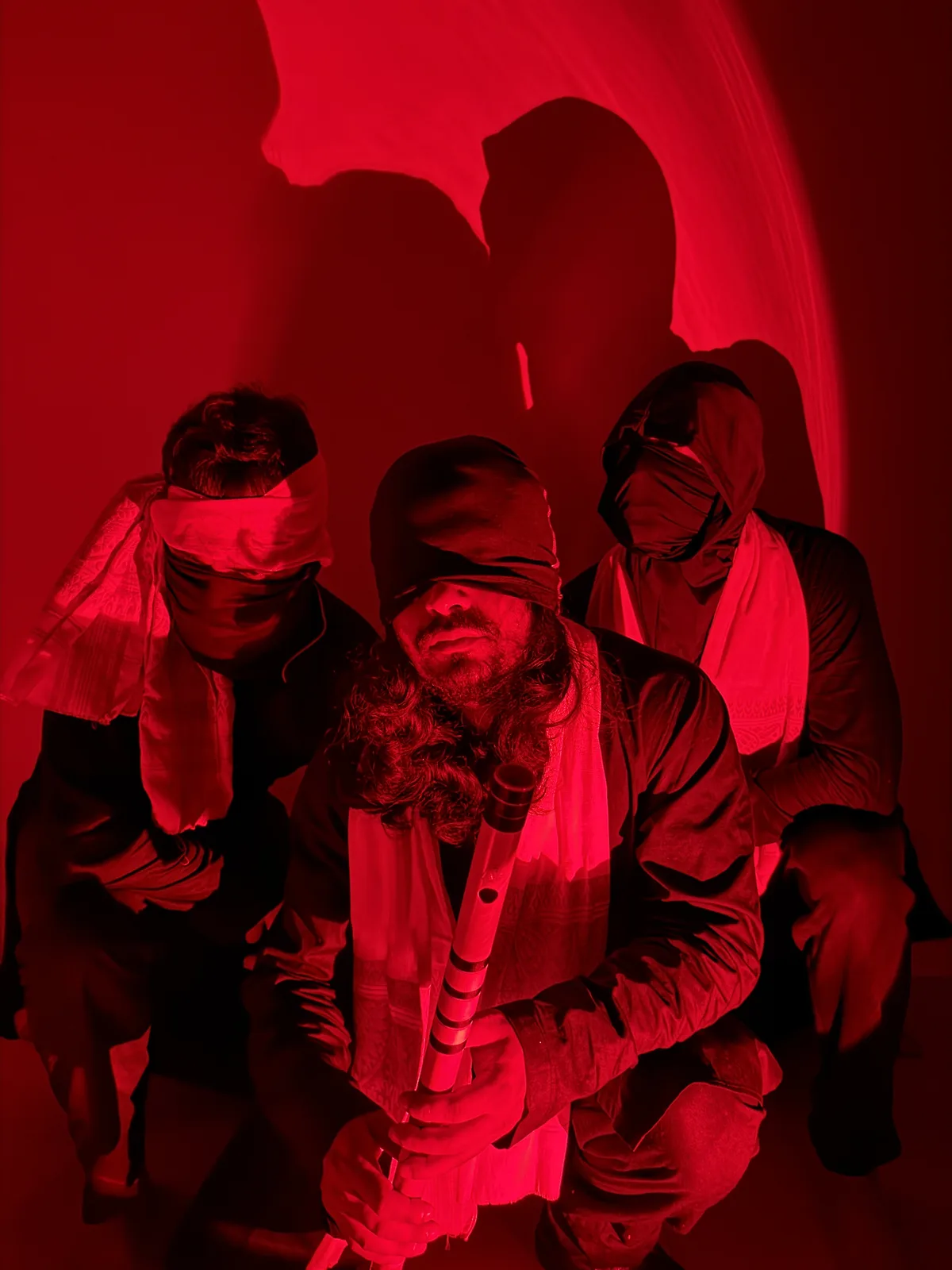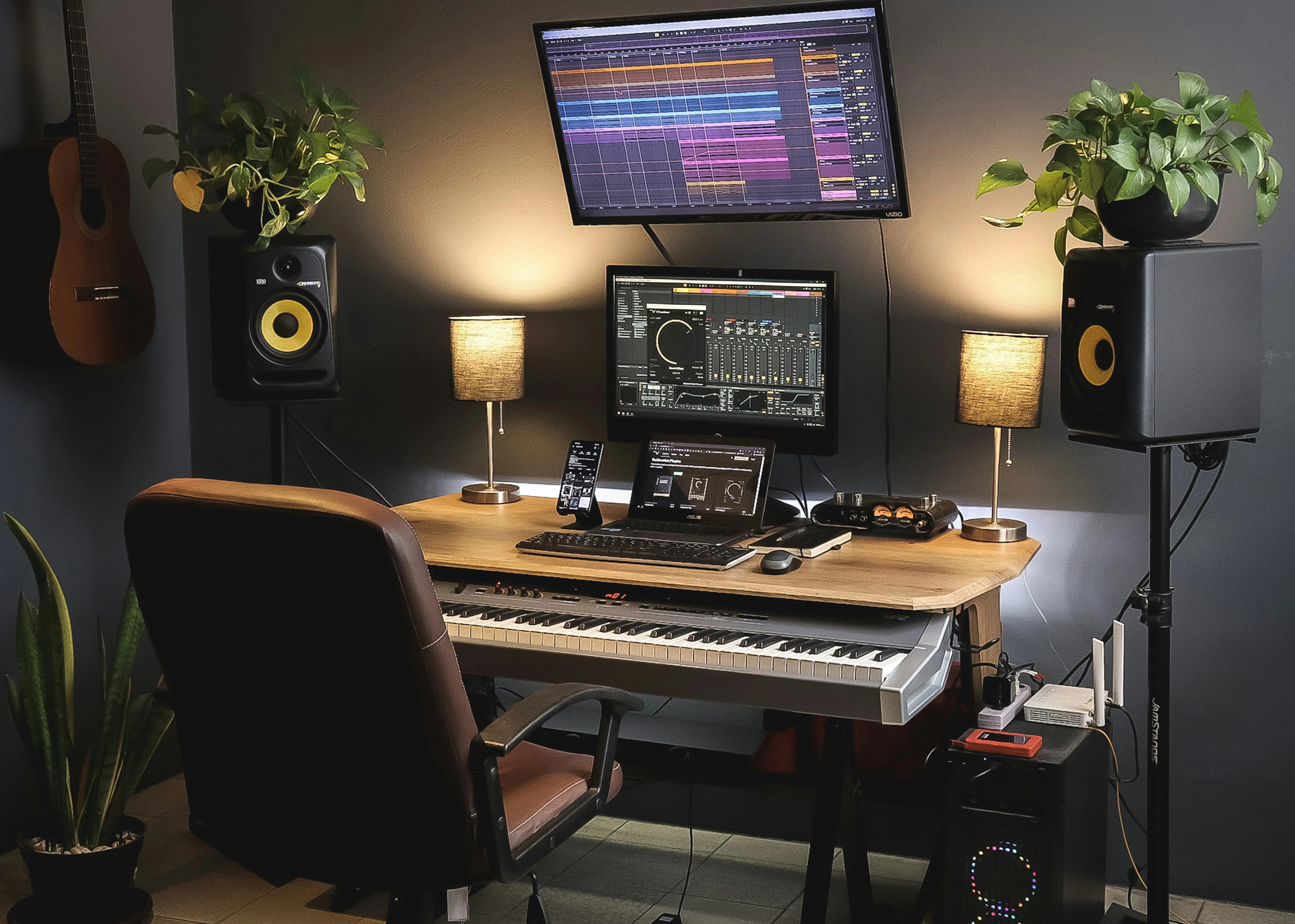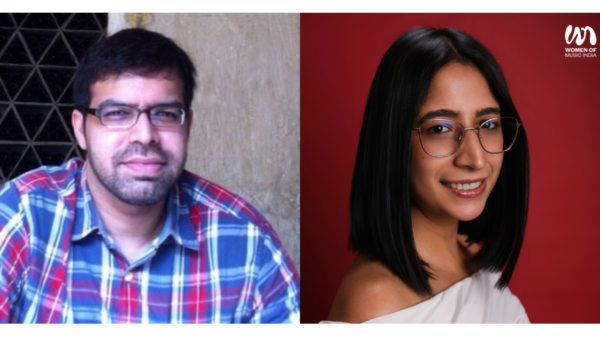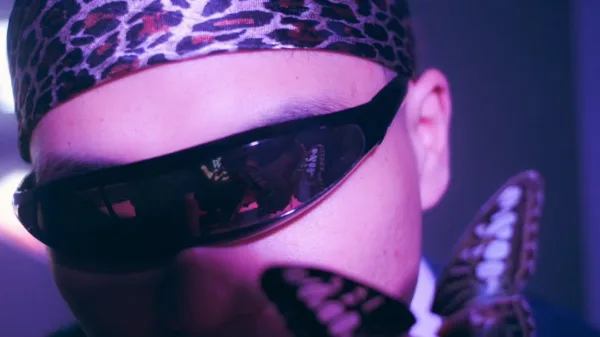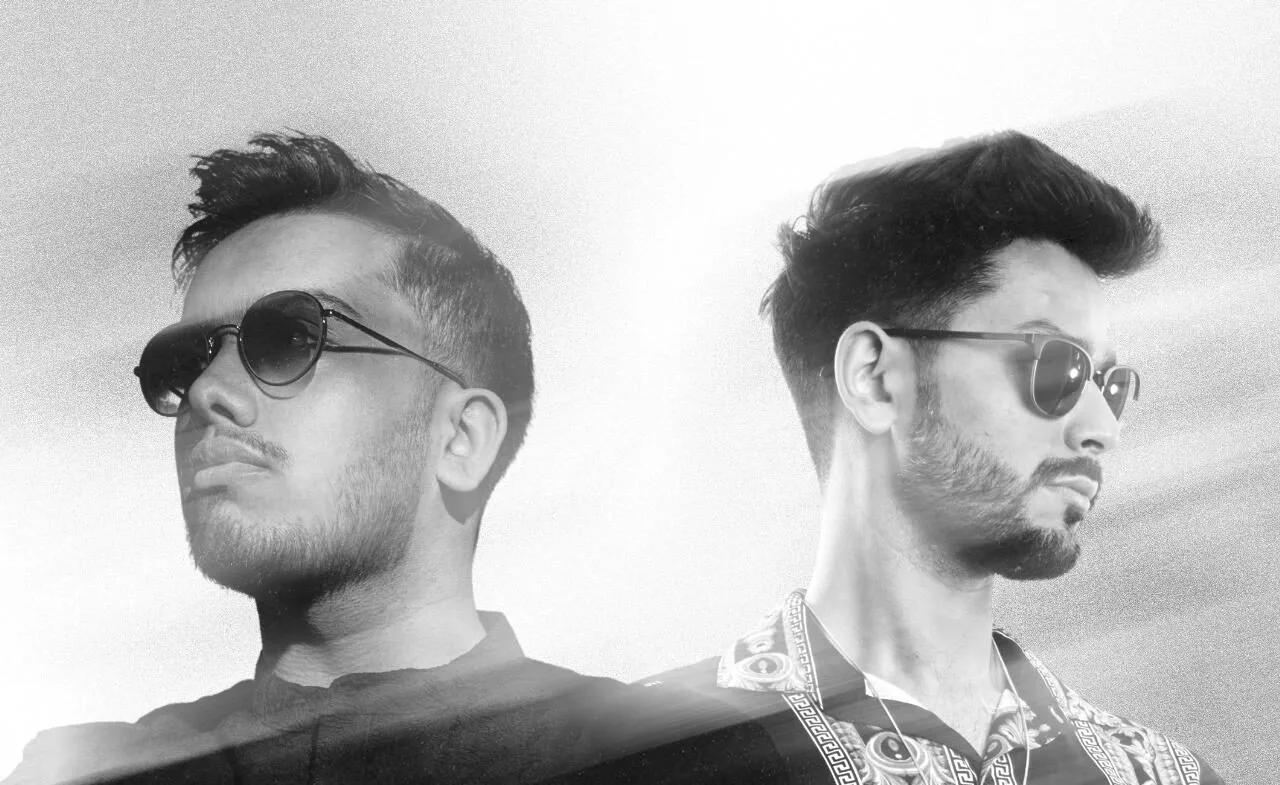Skopòs is a Delhi-based Genre-Fluid Music Producer / DJ & Curator who began his musical journey under the guidance of the legendary Jazzy Joe and honed his skills at the renowned Lost Stories Academy under the guidance of Jay Pei in Delhi.
Skopòs is known for his impromptu & versatile DJ sets that captivate audiences & keeps the dance floor in a state of perpetual motion. His sets are a mix of different genres with lots of percussive elements & fusion sounds from various parts of the globe.
Firaaq, on the other hand is a Music Producer/ DJ from Kolkata, known for his blend of Indian classical music and electronic sound. Rooted in the traditions he grew up with, his music bridges the old and the new in subtle, textured ways. His debut EP was noted for its distinctive sound and thoughtful production. Drawing from personal experience and cultural memory, Firaaq creates music that carries a sense of longing and reflection. With detailed melodies and minimal yet expressive arrangements, his work invites listeners into a space that feels both familiar and unexpected. Each release continues to shape his quiet, steady presence in the scene.
Recently, the two artists joined forces for their latest release, ‘Mohabbat.’ In a conversation with us, they talk to us about their journey so far.
1) Tell us a bit about your project. How did you begin your journey as an artist?
Skopos – My journey into music started unexpectedly back in 9th grade. My parents were the first to notice how naturally I connected with rhythms—I was always the one downloading tracks, organizing playlists, and messing around with VLC and Windows Media Player at house parties. Without realizing it, I was curating sounds and setting the vibe.
I grew up listening to classic rock, R&B & hip hop, but everything changed when I discovered electronic music.
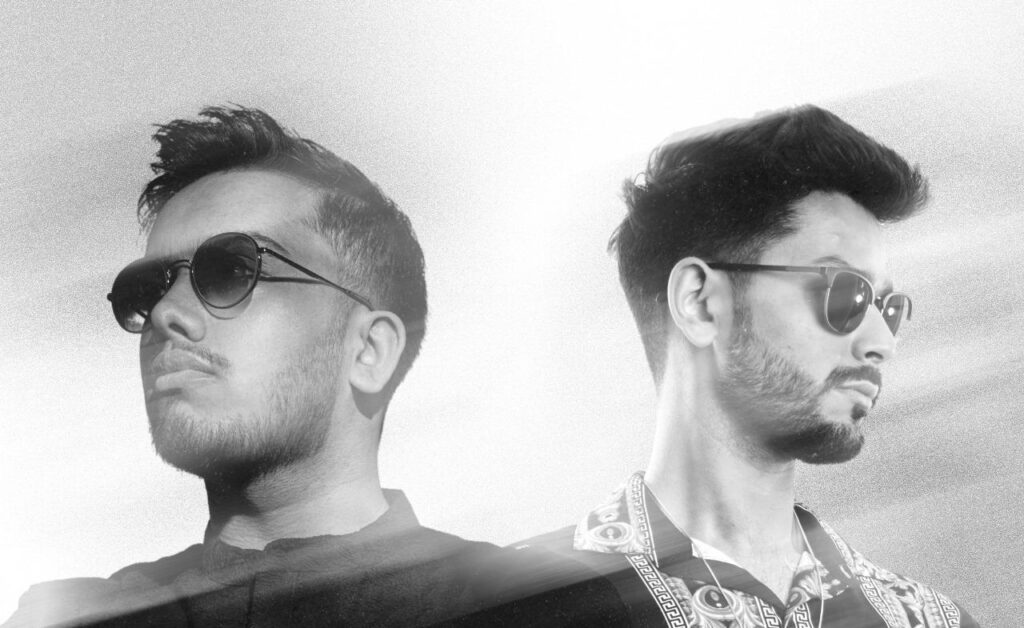
Firaaq – I started messing around with production during school — it was mostly just for fun at first. I was listening to a lot of electronic music and thought, “why not try making something myself?” Over time, it became something I couldn’t stop doing. The whole Firaaq project kind of grew naturally from there. It’s just me trying to make stuff that feels honest and sounds a little different.
2) Which bands/artists were your first love? Who is your biggest influence?
Skopos – Diplo, Timbaland, A.R. Rahman & Skrillex have been some of my biggest influences—not just for their music, but for their ability to blend cultures and defy genres across the globe. Their collaborative & genre-defying approach towards music has always inspired me.
When it comes to bands, my roots trace back to the legends—Hendrix, The Doors, The Beatles, & Pink Floyd just to name a few.
Firaaq – Early on, I was into KSHMR, Tiesto, and Four Tet. Talvin Singh, MEMBA, and Panjabi MC were big ones too — seeing how they blended Indian sounds with electronica was eye-opening. I’ve always gravitated toward people who build their sound worlds.
3) Tell us a bit about your latest release ‘Mohabbat.’
Skopos – Mohabbat is a special collaboration I did with Firaaq—one that felt organic from the very start. We took a beautiful qawwali sample from an M. Abdul Gani performance and flipped it into an Afro-house groove, blending tradition with modern energy. I felt it was time to step out of our comfort zone and explore new creative territory
Firaaq – ‘Mohabbat’ is a collab I did with Skopòs — it’s got this qawwali sample from an M. Abdul Gani performance that we flipped into an Afro-house groove. The idea was to keep the soul of the original intact but build a dancefloor energy around it. It came together pretty naturally, and honestly, it’s one of those tracks that just felt right from the start. Glad we put it out.
4) What is your music-making and recording process like?
Skopos -My music-making process is a blend of instinct, experimentation, and emotion. It usually starts with an idea—a melody, a rhythm, or even just a mood I want to capture. Sometimes, it’s a sample or a sound that sparks inspiration, like a vocal snippet, a groove, or an ambient texture.
I love to build around raw emotion, whether it’s flipping a traditional element into something modern or layering percussive rhythms to create movement. I usually start by laying down a beat or a chord progression, letting the track evolve naturally. Collaboration plays a big role too—bouncing ideas off other artists and feeding off different energies often brings out something unexpected.
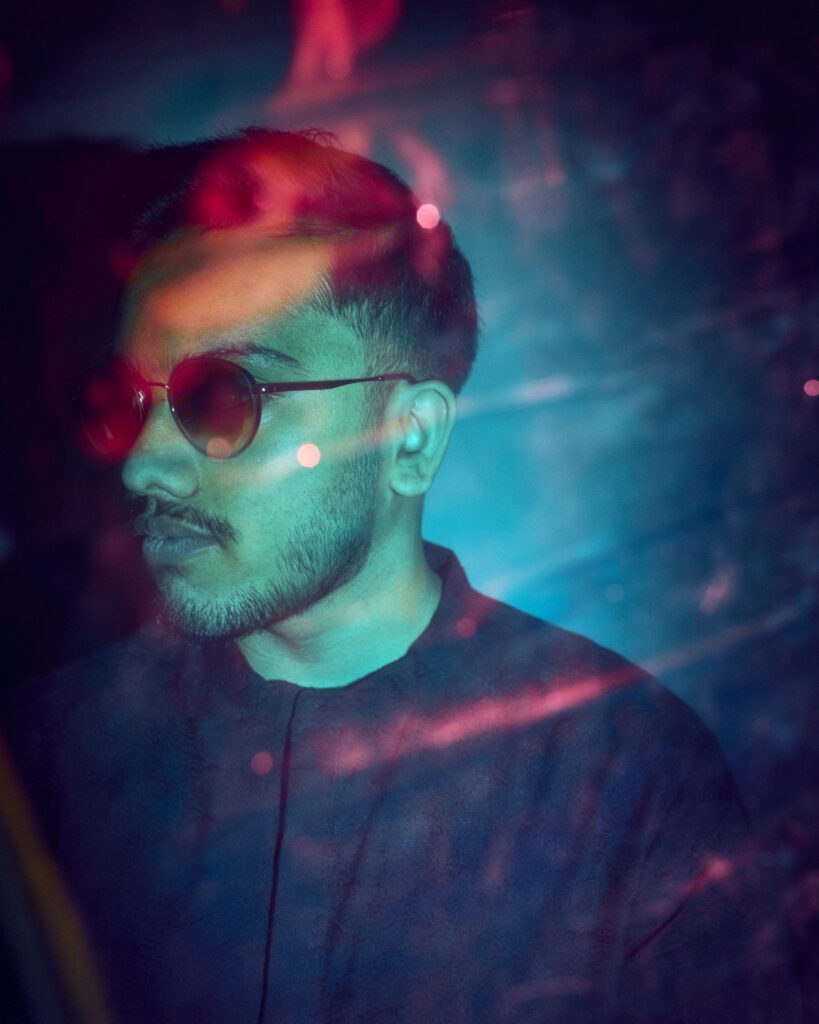
Firaaq, Pictured.
Firaaq – It usually starts with a mood or a texture I’m trying to capture. Could be a vocal sample, a field recording, or even just a random loop that hits different. I don’t really follow a fixed structure — I just keep layering and pulling things apart until it clicks. I’m big on atmosphere and groove, so I’ll often start with a rhythm or drone and build from there. Collaborating helps a lot too — bouncing ideas back and forth keeps things fresh and pushes me out of my own head.
5) Why do you make music? What drives you as a musician and what are your songs about?
Skopos – I make music because it’s my purest form of expression, a way to breathe life into emotions, memories, and experiences that words alone can’t capture.
Music to me – is a force of renewal, a source of healing and a bridge that connects people beyond boundaries.
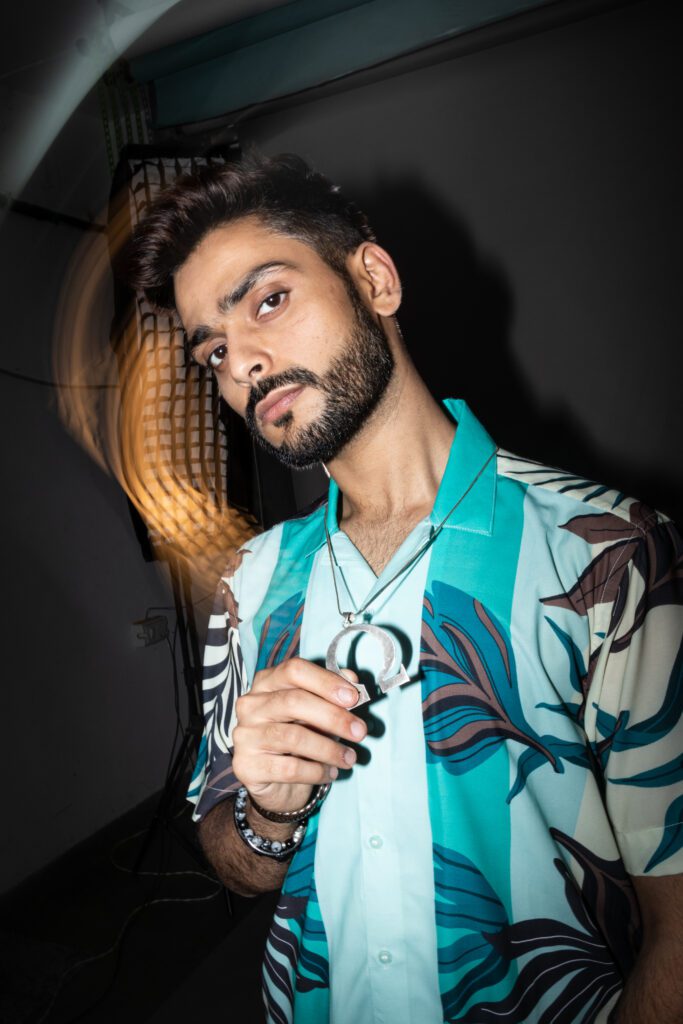
Skopos, Pictured.
At the heart of it, my songs are about movement—both physical and emotional. Some tracks are meant to make you dance, others to make you feel. But no matter what, I want my music to create an experience, to resonate with people in a way that sticks with them long after the last note fades.
Firaaq – For me, music is just the most honest way to express myself. There’s stuff I feel that I probably couldn’t put into words even if I tried — but I can put it in a track. It’s like a way of making sense of things or at least sitting with them. Making my own music also gives me so much more leverage on the dancefloor, and playing your own music out to a couple 100 odd attendees is one of the best feelings ever.
6) Which Indian bands or artists do you admire? And why?
Skopos – From legends to rising stars, the artistry of A.R. Rahman, Karsh Kale, HanumanKind, King, Seedhe Maut, Kiss Nuka, Blot, Kavya Trehan, Indian Ocean, The Local Train, Paresh Pahuja and PCRC showcases an unparalleled depth of finesse and versatility across diverse musical landscapes. Their craft isn’t just about sound—it’s about storytelling, culture, and a sonic experience that resonates beyond borders which truly inspires me as an artist. :’)
Firaaq – Lifafa doing his own thing — always respect that. Sandunes has a crazy attention to detail, and I love how she experiments without overdoing it. Komorebi, Curtain Blue, OAFF, Anyasa, Anhad & Tanner are some of my current favourites.
7) What’s your take on the independent music scene in India?
Skopos – I feel the indie music scene in India has undergone a powerful transformation post-pandemic becoming more diverse, digital, and globally recognized than ever before. Artists are no longer just waiting for opportunities—they’re creating them. Platforms like Spotify, YouTube & Instagram have given musicians the freedom to connect directly with their audiences, while Spotify RADAR and Apple’s Up Next are amplifying fresh talent.
Indie is no longer just an urban movement & live music is thriving again, it’s reaching regional corners and embracing new genres like hip-hop, electronic, jazz, and folk fusion proving that music in India is more eclectic than ever!!
It’s an exciting time for independent artists—this isn’t just a scene anymore, it’s a movement!
Firaaq – Music’s never been more accessible — both for artists and listeners. You can make a track in your room and have it streaming worldwide the same day. Listeners are discovering music through reels, playlists, and algorithms that weren’t even around a few years ago. And with all the data we get — where people are listening, what’s working, what’s not — it’s way easier to be intentional about how you release and promote your stuff. If you’re putting music out today, this is honestly the best time to do everything you can to reach new people.









